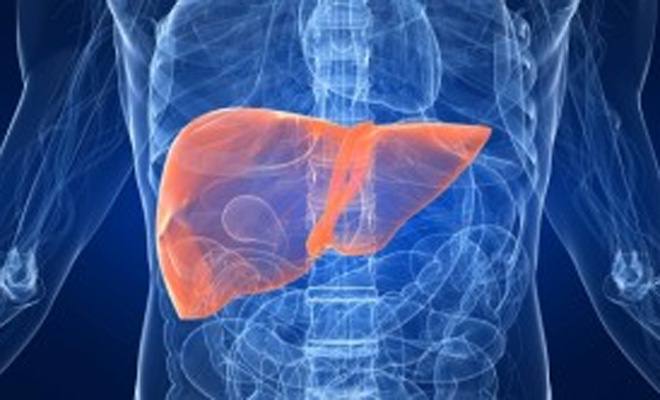
The excess copper mineral is usually excreted in the normal functioning of a body. However, for a person suffering from the hereditary Wilson disease, the excess copper remains in the body and is deposited in various tissues.
To shed light on Wilson disease, liver specialist Professor Dr Aftab Ala, from the University of Surrey UK in association with the Welfare Organisation for Wilson Disease (WOWD), visited Pakistan with an aim to elucidate the disease for people through his 15-year research.
Punjab to focus on health, education, clean water
In an exclusive interview with The Express Tribune, Dr Ala said that Wilson disease is a rare disorder - a genetic defect - that can affect both the liver and the central nervous system.
When all required tests are taken for a noticeable change in someone's behaviour or personality or you have an unexplained chronic liver pain or neurological alterations, and you are unable to explain the cause of it, you might want to think about the Wilson disease, which is a very rare phenomenon and needs awareness.
"There is no single test that will give you the diagnosis of Wilson disease," said Dr Ala.
He said that the basic assessment includes a physical examination and taking stock of the patient's history as well as that of their mother, father and other family members. Through the patient's medical history, he said, they look at how long the patient has had symptoms, whether they had a family history of someone dying prematurely, or any sort of psychiatric illness in the family.
Punjab health department to adopt K-P model
Sometimes, the examination does not reveal anything, when in fact the individual is suffering from the disease, and vice versa.
Dr Ala said that these examinations should be performed as soon as the symptoms are picked up.
Symptoms
The symptoms can be as subtle as changes in behaviour, mood or personality. At times, when the disease affects children, there will be significant changes in their performance at school over time. This may include difficulties in performing in exams, concentrating on writing and even walking can be limited.
Sharing his experience with a child suffering from Wilson disease, who visited him at his clinic, Dr Ala said that the parents had noticed an unfamiliar behaviour in their child, who was unable to perform even simple tasks such as dress himself properly. The child had difficulty in coordinating and even simple things such as eating his breakfast became an ordeal. The child used to drool or had difficulty swallowing.
The symptoms may also include excess salvation, clumsiness of hands, difficulty in speaking and coordinating. If left untreated, the patient may start having fits, contractures and stiffness. The disease could even lead to brain damage, liver failure or death.
Treatment
Wilson disease is not infectious or contagious, but it can be fatal if not treated or if the treatment is discontinued, remarked Dr Ala.
If the disease is caught early in life, it can be treated in an appropriate manner, but once the treatment has started, it has to be continued. He said that the therapy started by the doctor must continue for the rest of the patient's life. "We've found that in some instances, if patients haven't taken medication over a certain period they've suffered liver failure and died. It was something that could very easily be prevented," he said, adding that there are certain drug therapies, which are available to treat the disease, including penicillamine and trientine.
These are not easily available in Pakistan and can be very costly as well.
Dr Ala said that there needs to be an improvement in diagnosis, which will help us assess the performance of various therapies.
Prevalence
The prevalence of Wilson disease can be one in 30,000 to one in 100,000, depending on your geographical location. In Australia, the prevalence can be one in 100,000 compared to other countries, including some parts of Europe, where it can be one in 30,000, said the liver specialist, adding that in other countries it can be a lot more common than that.
There is an increasing prevalence of the disease around the world, for example in Sardinia, China, Japan and also in Middle Eastern countries, like Saudi Arabia.
He said that in countries like Pakistan, most cases of Wilson disease are diagnosed at a more advanced stage compared to countries like the United Kingdom (UK), where the symptoms can be picked up at an early stage.
There could be various reasons for that. It could be that patients might have difficulty seeking advice from doctors or it could be that sometimes, as is quite common around the world, diagnoses can be extremely difficult to make, as unfortunately there is no specific blood test or urine test, he added.
It requires multiple tests or clinical signs and symptoms to put the data together to work for a specific diagnosis.
Way forward
Citing an example of an established authority working for the cause, Dr Ala said, "In the United States (US), there has been coordination from at least five centres across North America to come together and share data on their experiences on Wilson disease in the form of a registry."
He added that those centres are also looking at the already established and the newly-diagnosed patients to try and collect as much information as possible on them by working on the biology of Wilson disease, the history as well as the therapy in existence as well as newer therapies that they have in trial.
Talking about his mission on awareness and on-going research on Wilson disease, he said, "We don't really know why in some countries it might be more common than others. That's exactly why we need a number of clinical and research studies to actually explore reasons as to why the disease can be more common in some countries and ethnicities."
Published in The Express Tribune, October 8th, 2018.



1724152318-0/beyonce-(1)1724152318-0-165x106.webp)
1728213758-0/Tribune-Pic-(2)1728213758-0-165x106.webp)

1728193217-1/Copy-of-Untitled-(5)1728193217-1-270x192.webp)










COMMENTS
Comments are moderated and generally will be posted if they are on-topic and not abusive.
For more information, please see our Comments FAQ